In April 2018, a group of Swiss, Brazilian, Israeli and Palestinian Zen Peacemakers visited Israel and Palestine in a ‚plunge‘ – a self-organized bearing witness action done by Zen Peacemakers groups around the world. Iris Katz, who co-organized the event with the support of Roshi Barbara Wegmüller, shares her reflection below.
By Iris Dotan Katz. Photographs taken by plunge participants.
A few years ago, I accompanied Bernie Glassman, founder of Zen Peacemakers, to pay a visit to Ari Ariyaratne, the founder of the Buddhist social action Sarvodaya Shramadana Movement at Sarvodaya in Sri Lanka. I shared with Bernie for the first time the idea of having a bearing witness retreat in Israel-Palestine. It seemed like a huge, almost impossible task, and I was seeking for guidance.
A few years later Bernie planned to have a small plunge to Palestine and it did not work due to the growing hostility and violence in the area.
In the past two years, with the growing practice of conducting small plunges and retreats among the group of the Southern European Zen Peacemakers circle, I felt encouraged to take a small step on the way to a potential retreat in Israel-Palestine. In April 2018 this dream started to become real.
Every year the Holocaust day in Israel is commemorated with a siren, heard all across Israel, accompanied with both national and local ceremonies. All the entertainment places and restaurants are closed, flags are lowered and the media is totally attuned. Seventy years past and the Israeli nation is mourning, memorializing and reflecting.
The Holocaust Memorial Day is always the first event initiating symbolically, every year, the full cyclical narrative of the Israeli-Palestinian conflict. Exactly a week later, Israel holds Memorial Day to commemorate the soldiers who were killed in the different wars, again by national and local ceremonies. This Memorial Day is immediately followed by the Israeli Independence Day. Like in a mirror this of course ignites the beginning of the Palestinian tragedy commemorated in the annual events of the Naqba day [Editor’s Note: ‘Naqba’ means ‘Catastrophe’ in Arabic], all connected to the ongoing struggle against the occupation and towards an independent Palestinian state. In this complex narrative, anxiety, fear, hope, grief, joy, aggression and compassion all blend together.
Tuesday – April 18th.
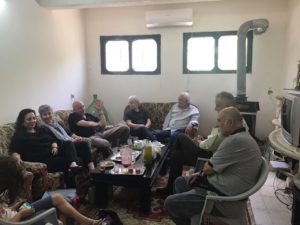 Barbara and Roland were the first to arrive on the evening of the Holocaust Memorial Day, although we actually started our plunge six days later, participating in the „Alternative Memorial Ceremony“. This ceremony is organized by the Bereaved Parents Circle and Combatants for Peace. Both populations, Palestinian and Israeli, join both of these organizations. The first, the „Parents Circle“, was established by bereaved parents from both sides who decided to transform their grief and need for retaliation into a strong call for reconciliation and a commitment that it will not happen to others. The second organization, „Combatants for Peace“ was established by soldiers from both sides who decided to leave their weapons and devote their time and effort to wage peace.
Barbara and Roland were the first to arrive on the evening of the Holocaust Memorial Day, although we actually started our plunge six days later, participating in the „Alternative Memorial Ceremony“. This ceremony is organized by the Bereaved Parents Circle and Combatants for Peace. Both populations, Palestinian and Israeli, join both of these organizations. The first, the „Parents Circle“, was established by bereaved parents from both sides who decided to transform their grief and need for retaliation into a strong call for reconciliation and a commitment that it will not happen to others. The second organization, „Combatants for Peace“ was established by soldiers from both sides who decided to leave their weapons and devote their time and effort to wage peace.
When I entered the location of the ceremony there were more people than I expected, maybe because early that morning the Supreme Court canceled the restrictions given by the Minister of Defense, thereby reinstating permission for the Palestinians to join the event. The ceremony itself was a combination of grief and hope accompanied with the notion of a joint destiny and a commitment to give meaning to the huge sacrifice paid by both sides. It ended with an inspiring talk given by the world-known author David Grossman, also a bereaved father who lost his son during his army service. He ended his talk by saying there will be no calm and comfort to Israel without calm and comfort to Palestine and vice versa.
Like in every year the 7,000 people joining the ceremony faced, although very well contained by the police, a huge and vocal rally of right wing activists opposing the ceremony and accusing the Israelis participating in it of being traitors. As the opposition grows the inner belief of the participants grows as well, creating a huge separation within the Israeli society.
Wednesday – April 19th
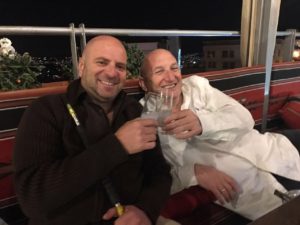
The next morning we started with meeting Daniel & Gilad, two young social entrepreneurs who decided to lead a social venture aimed to improve the communication between Israeli Jews and Israeli Arabs [editor’s note: ‚Israeli-Arabs‘ is commonly used for Arabs of Palestinian ancestry living within the borders of Israel]. They have established an online platform for teaching colloquial Arabic for free, named „Madrasa“ (which means school in Arabic). In the process they are trying to find ways to befriend the Arabic language and remove barriers to interpersonal interactions as well as promote public acceptance and equality. Aside from their innovative learning platform the main change they are offering is the civil society perspective focused to emphasize the similarities and strong embedded connections between the languages.
Later that morning, after silently standing together to the nation-wide siren, commemorating the Israeli victims of the different wars, we headed to the north of Israel to meet Wafa in her village. Wafa is an Israeli Arab woman leader who is part of an alternative workers’ union focusing on women’s empowerment. The story told by her was a story of a woman fighting the Israeli administration for equality and rights, while at the same time challenging the huge forces within her culture trying to restrict and prevent her from an amazing process of liberation. The internal as well as external violence and discrimination were interwoven with incredible civil courage, creativity and acts of full inclusion.
Back home, in the late afternoon, we had our first council before heading to bear witness to the joy of a community celebrating the 70th anniversary of independence of the state of Israel. Some of us continued to a dance party while others went to sleep.
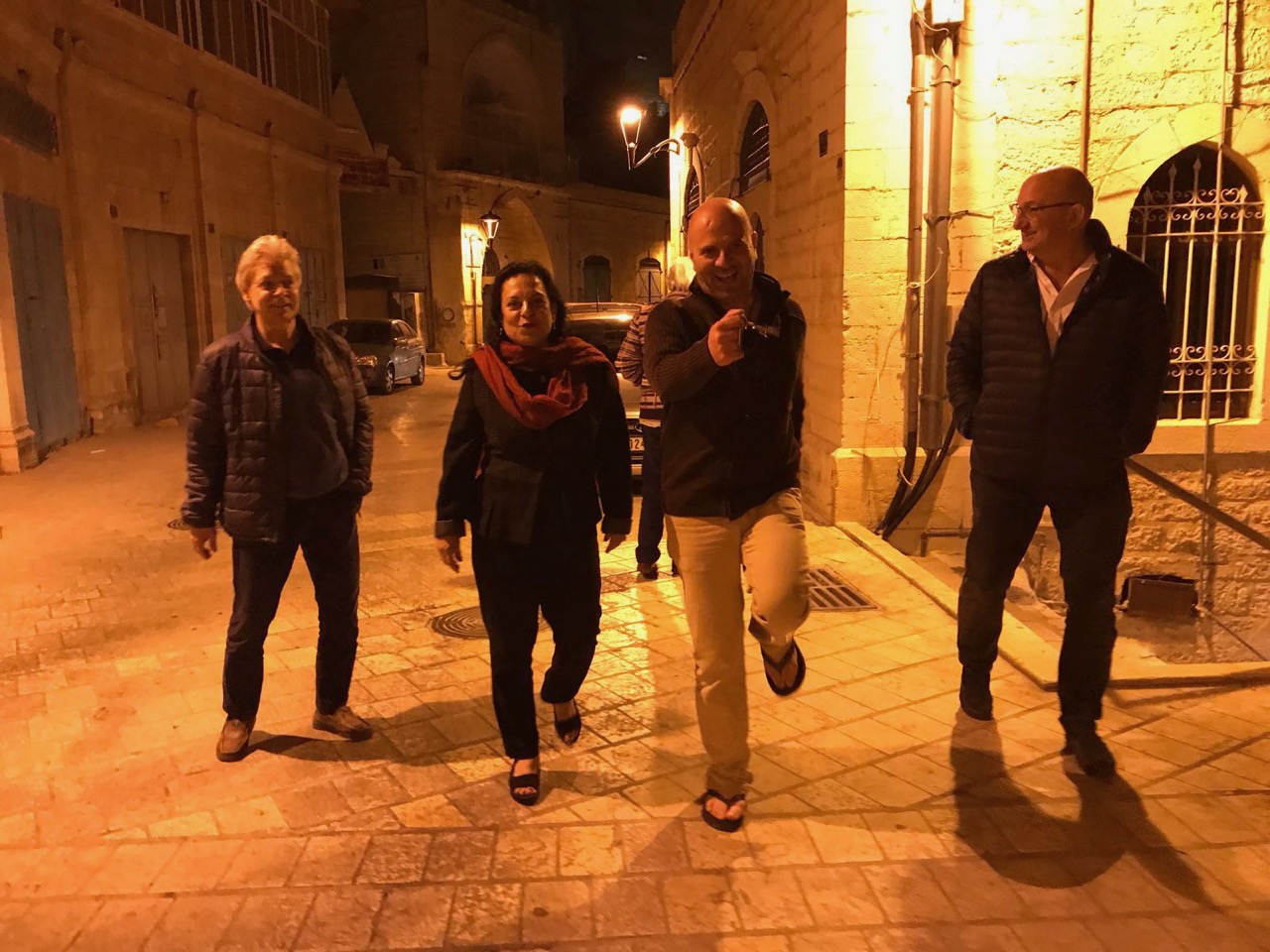
Thursday – April 20th.
The next day, while Israel is still celebrating its independence with huge family and friends gatherings, we drove toward the checkpoint, crossed the border to the West Bank, through area C and then B [editor’s note: the letters designate the jurisdiction between the Israeli Army, the Palestinian Authority, and co-jurisdiction], and arrived at the Palestinian village of Deir Istya. Upon arrival, Zoher, a nonviolent social activist, and Ayub, the former mayor, welcomed us. Deir Istya is a very old village in the Samaria mountains, growing olives and orchards. Most of the agriculture lands of the village were declared by Israel as a nature reserve, thereby limiting ongoing cultivation and prohibiting new planting. These lands are more and more surrounded by Jewish settlements.
Joining us on this visit was Aviv, a colleague of mine and the founder of the Israeli Socially Engaged Buddhist Sangha. Aviv, myself and other members are working in Deir Istya on a regular basis, trying to assist in their efforts to maintain human dignity, help in harvesting olives and bearing witness to their nonviolent yet persistent struggle to reduce the constant threat on their land and livelihood.
All together we went to see the newly built guesthouse for tourists in the center of the old town, which was also completely renovated. The guesthouse itself will be part of an agro-touristic venture, which will include providing microfinance schemes to families in the village – a project supported by international groups.
Crossing back to Israel we went to eat hummus and reflect on our experience over lunch in an Israeli Arab village. There we met the wealthy restaurant owner now living in Germany, opening every year another one but coming back very often to be with his family. His passion for creative livelihood, his commitment to his family, his openness and friendliness made me feel how close and similar we are.
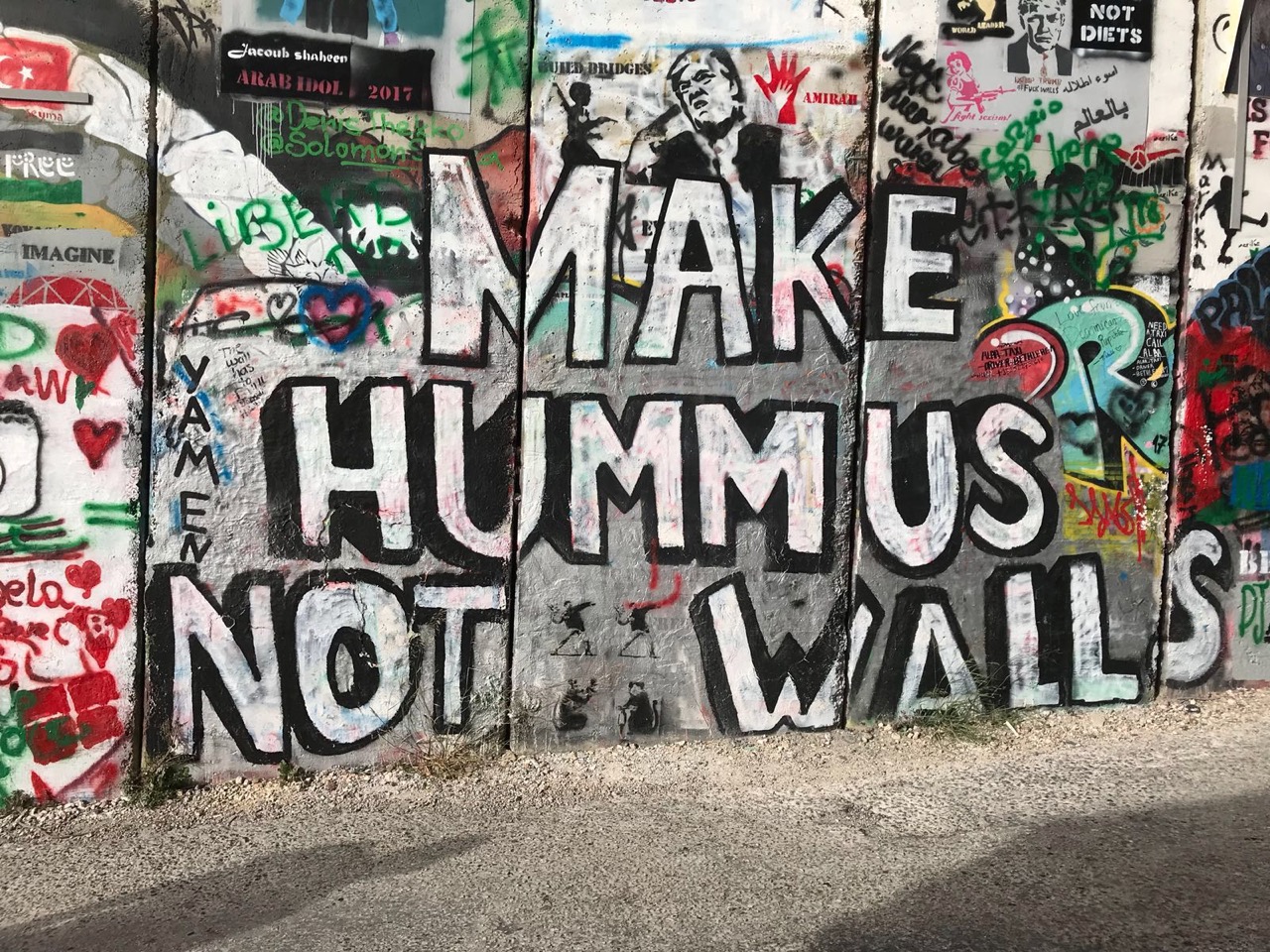
Departing from Aviv we drove south and once again crossed the checkpoint to the Palestinian authority, heading to meet Ali Abu-Awad. Ali is a grassroots peace activist and now is leading a Palestinian nonviolent movement called „Karama“ (which means “dignity” in Arabic). Also together with his brother Haled, he is leading a movement called „Roots“ or „Shorashim“ (in Hebrew), which is focused on promoting dialogues between the Israeli settlers and Palestinians, both sharing the same land. Earlier he was working with me in a joint venture we called Leading Leaders for Peace and was also one of the founding members of the Bereaved Family Circle, since his brother was killed by Israeli soldiers. Before becoming a peace activist he was strongly fighting against the Israeli occupation and spent a few years in the Israeli prison.
To date, Ali strongly believes that each of the sides has to separately grow, by grassroots, the power to influence the leaders from within.
Continuing to Bethlehem we concluded our day with a long council circle, which we had at the house of Sami Awad in Beit Jala. Sami is the founder of the Holyland Trust and also expressed his interest to be part of our Southern European Peacemakers circle. A few years back he also took part in the Auschwitz Bearing Witness retreat and with the help of Roland and Barbara and their Swiss Sangha he is sending members of his organization to join the retreat, believing in its unique importance to Palestinians.
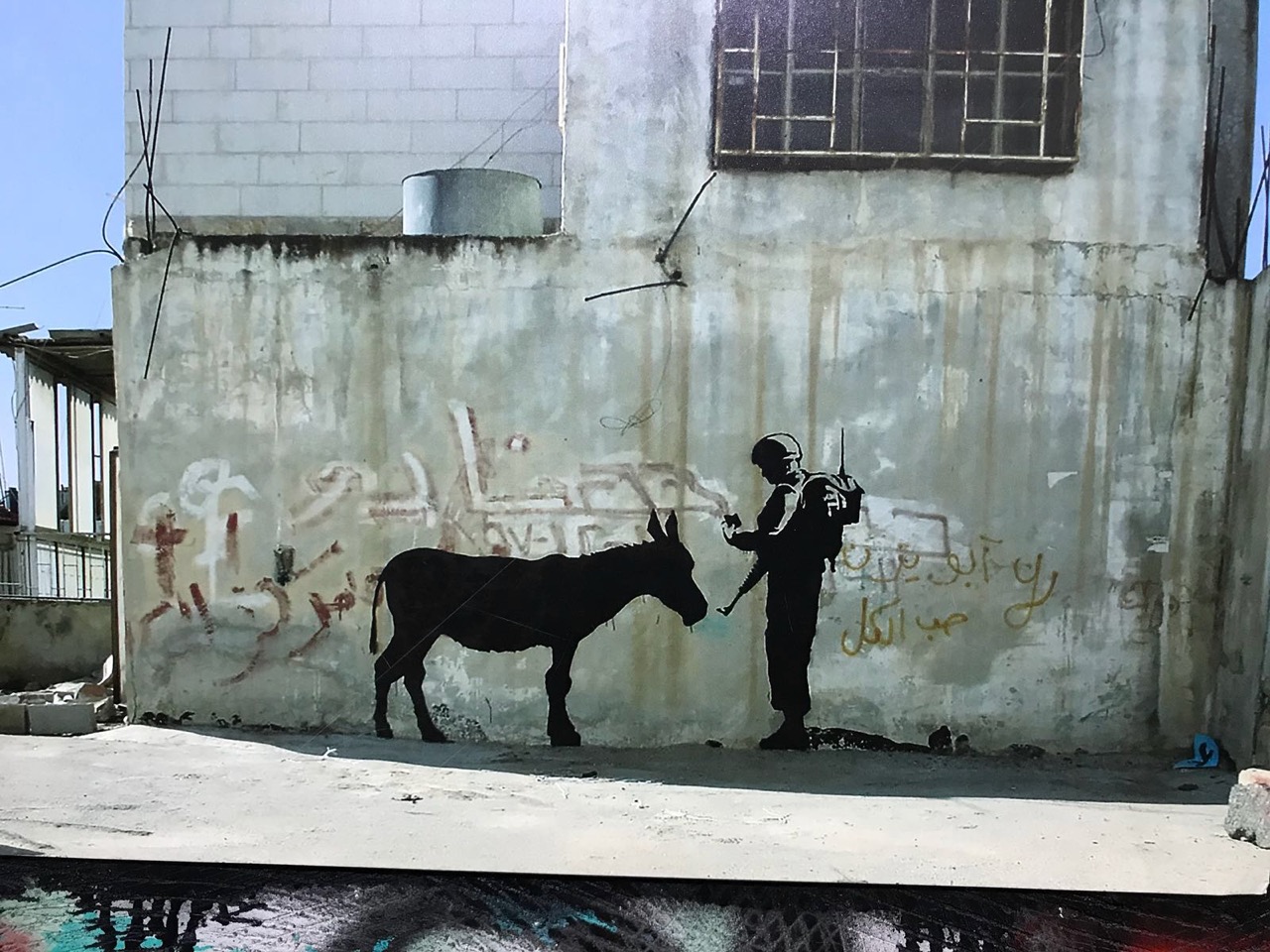
Friday – April 21st
In the morning we went to the magnificent center of the Holy Land Trust where we heard from Sami the work he does to empower the communities around Bethlehem, and the different transformations he has undergone— from supporting a two states solution to a one state solution.
After that, in the beautiful meditation room, it was my moment of inspiration when I received the Zen Peacemaker Precepts from Roshi Barbara Wegmüller. For me, being with dear friends in Bethlehem, the city of peace, the city where I initiated my first peace activity– was truly incredible.
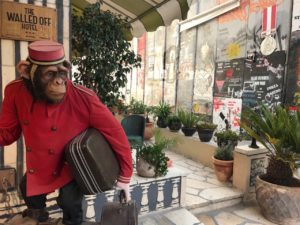
After a council circle we had during lunch, we went to bear witness to the separation wall where, among others, the famous graffiti artist Banksy painted tremendously meaningful paintings. In the renovated hotel, „Walled-Off Hotel,“ just across the wall, we visited the gallery dedicated to Palestinian artists and hosting a video installation called „Alienation“ focusing on refugees and deportees.
A half an hour later, walking in the Ayda refugee camp, we could strongly feel the hopeless life conditions of those deported Palestinians. Everything looked temporary, starting with the symbolic huge key above the entrance gate. The unpainted half-built houses in the crowded unplanned streets strongly portrayed the reality that, although seventy years have passed, people living there are still waiting to leave and go back home.
Saturday – April 22nd
After a wonderful breakfast Sami had prepared for us we left to Jerusalem, entering this beautiful, complicated and contested city from the east. We could bear witness to how gradually but systematically the Jewish settlements became an almost inseparable part of the city.
We met Ibrahim El-Hawa who took us to his peace house on the Mount of Olives, not before we had a chance to see Jerusalem from the west and to bear witness to the Jewish, Muslim and Christian graveyards shining together in front of the holy places of these three religions.
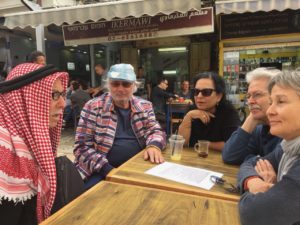
Ibrahim is a persistently devoted peace activist. Together with partners he established a movement called the „Children of Abraham,“ engaging Christian, Muslim and Jewish religious leaders to acknowledge the common denominators among these seemingly different religions. In the past ten years he operates in the Mt. of Olives his ‘Peace House,’ offering whoever wants to stay meals and a place to sleep for free. While cooking and eating together we met people from Poland, Ukraine, Brazil and Japan, experiencing Ibrahim’s vision of inclusivity. Later on, walking in the narrow streets of the old city of Jerusalem, we could bear witness to this vision coming true. Ibrahim would personally welcome Israelis, Palestinians and tourists from all over, chatting with them, giving them information and inviting them to his house.
Back home, we had our closing meditation sitting and shared our emotions and thoughts in our small council. Acknowledging the friendship, being even more aware of the deep complexity, encouraged by the courage and creativity of the people we met– we vowed to continue.
During the delicious meal that we prepared together, based on the ingredients we bought in the old city, we could not stop laughing when we remembered Bernie’s Koan, mentioned by Roland, saying „when you reach a fork on your way– take it.“ I wonder whether this laughter was a way to relieve some tension after five intensive days or whether it reflects our confusion facing the complex conflict we were bearing witness to.
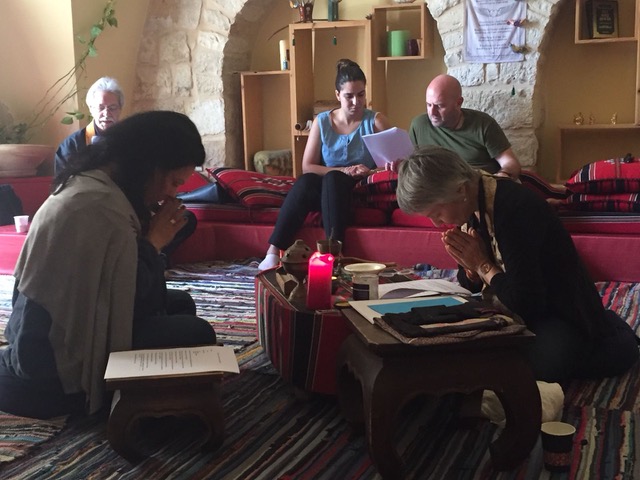
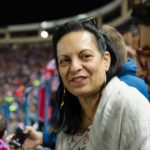 Iris Dotan Katz is an Israeli clinical psychologist, a Buddhist practitioner, a peace activist and organizer working in Palestine, Israel and Sri Lanka, often with her social innovator partner Tani Katz. She has participated in the Zen Peacemakers Bearing Witness Retreats in Rwanda, Black Hills and repeatedly at Auschwitz. Iris is one of the co-organizers of the 2017 Bosnia Bearing Witness Retreat.
Iris Dotan Katz is an Israeli clinical psychologist, a Buddhist practitioner, a peace activist and organizer working in Palestine, Israel and Sri Lanka, often with her social innovator partner Tani Katz. She has participated in the Zen Peacemakers Bearing Witness Retreats in Rwanda, Black Hills and repeatedly at Auschwitz. Iris is one of the co-organizers of the 2017 Bosnia Bearing Witness Retreat.

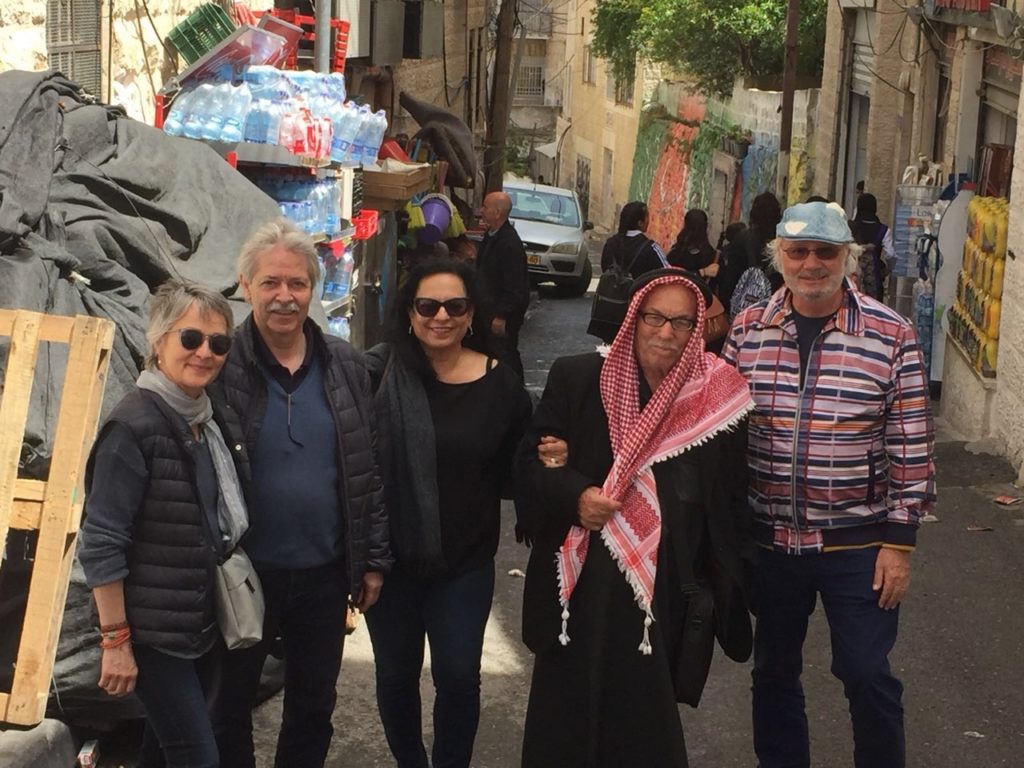
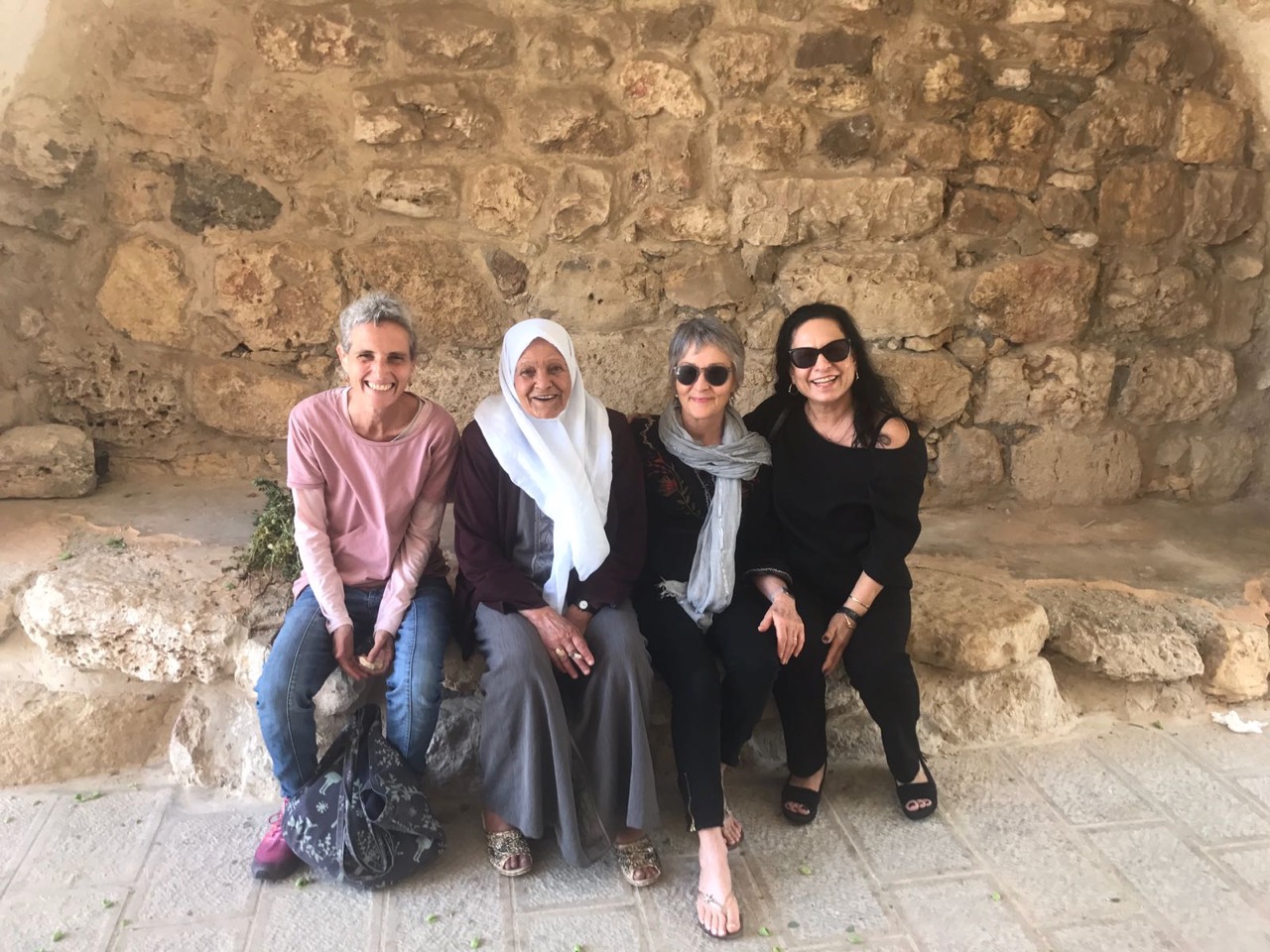
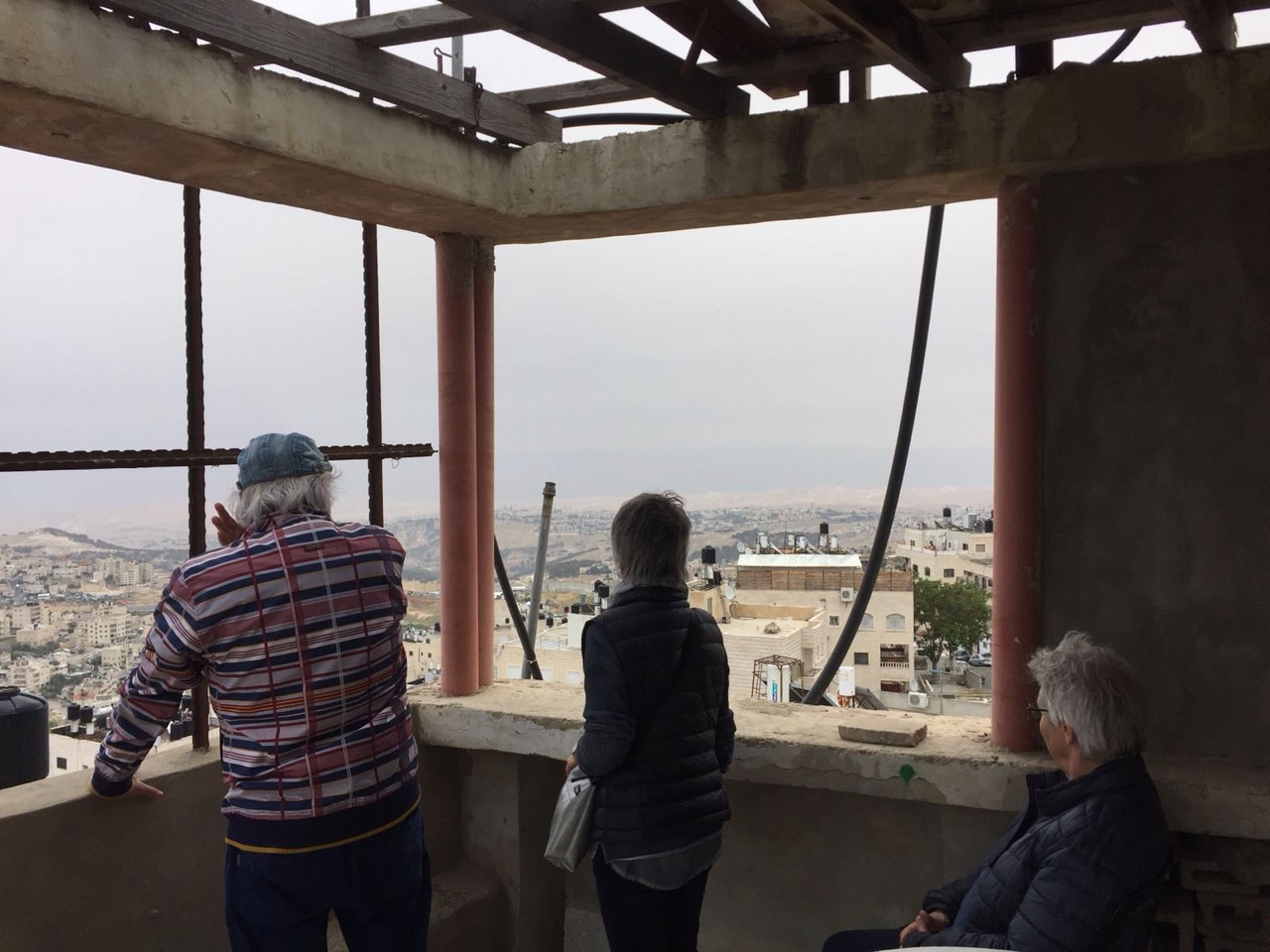
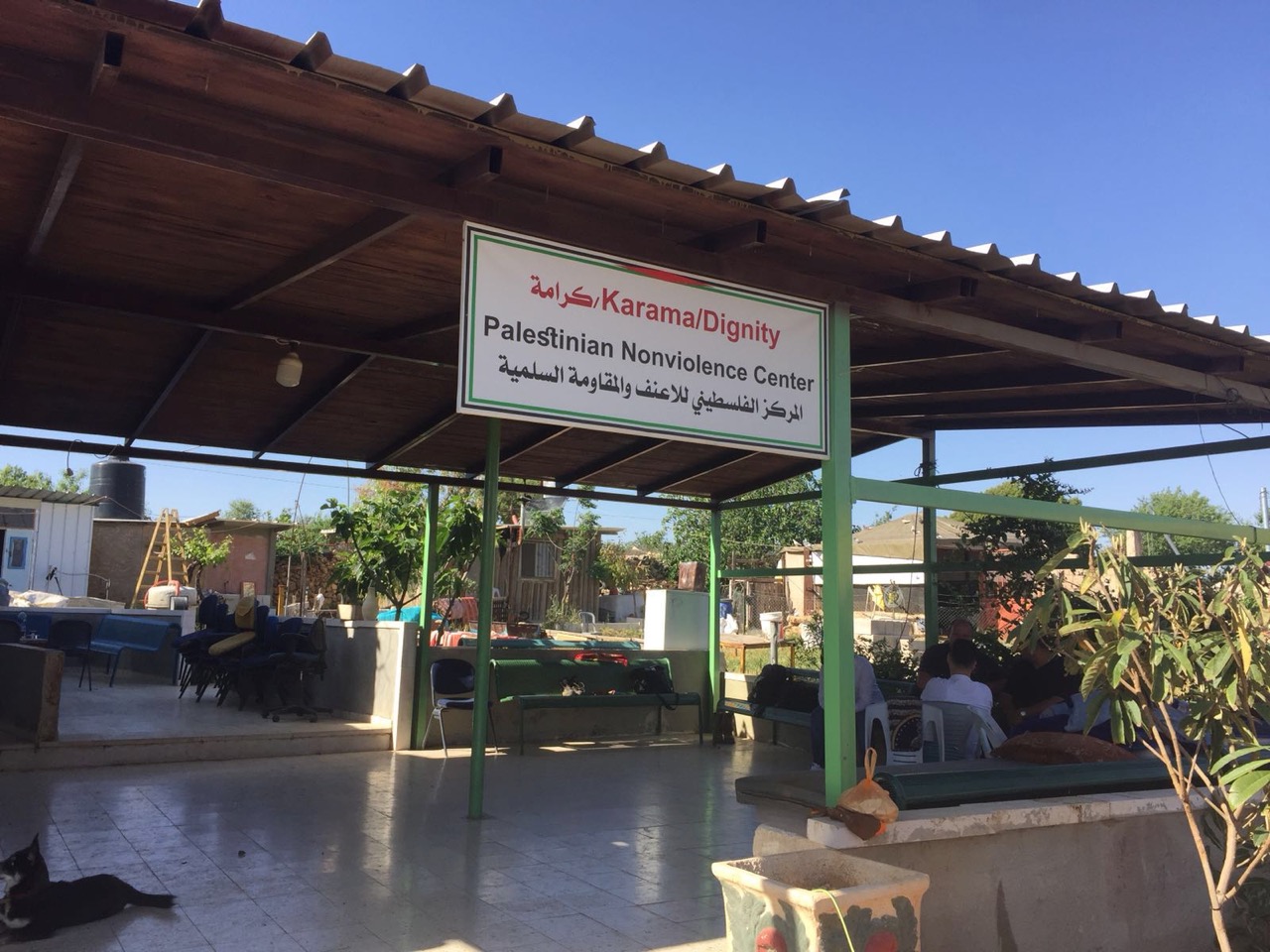

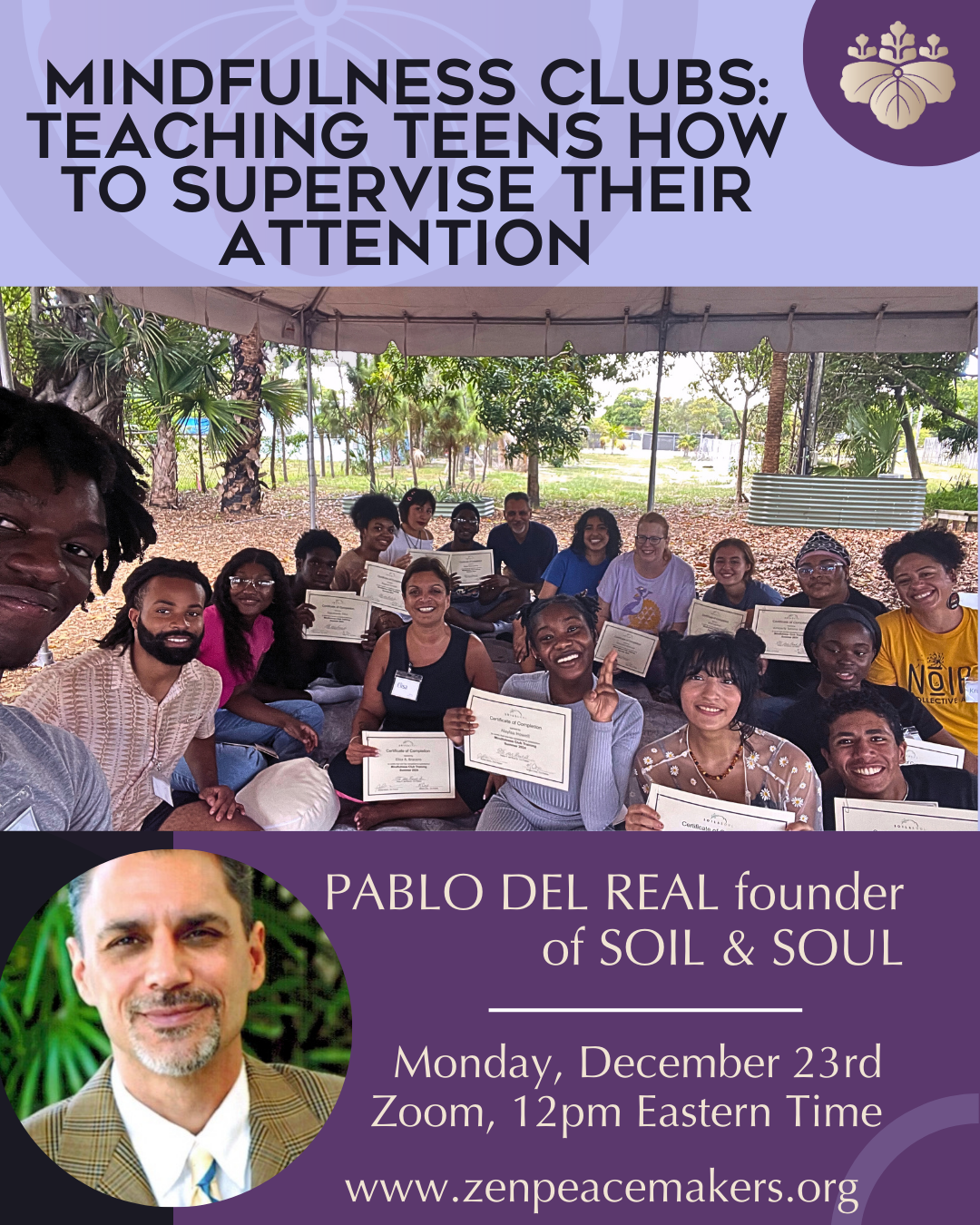
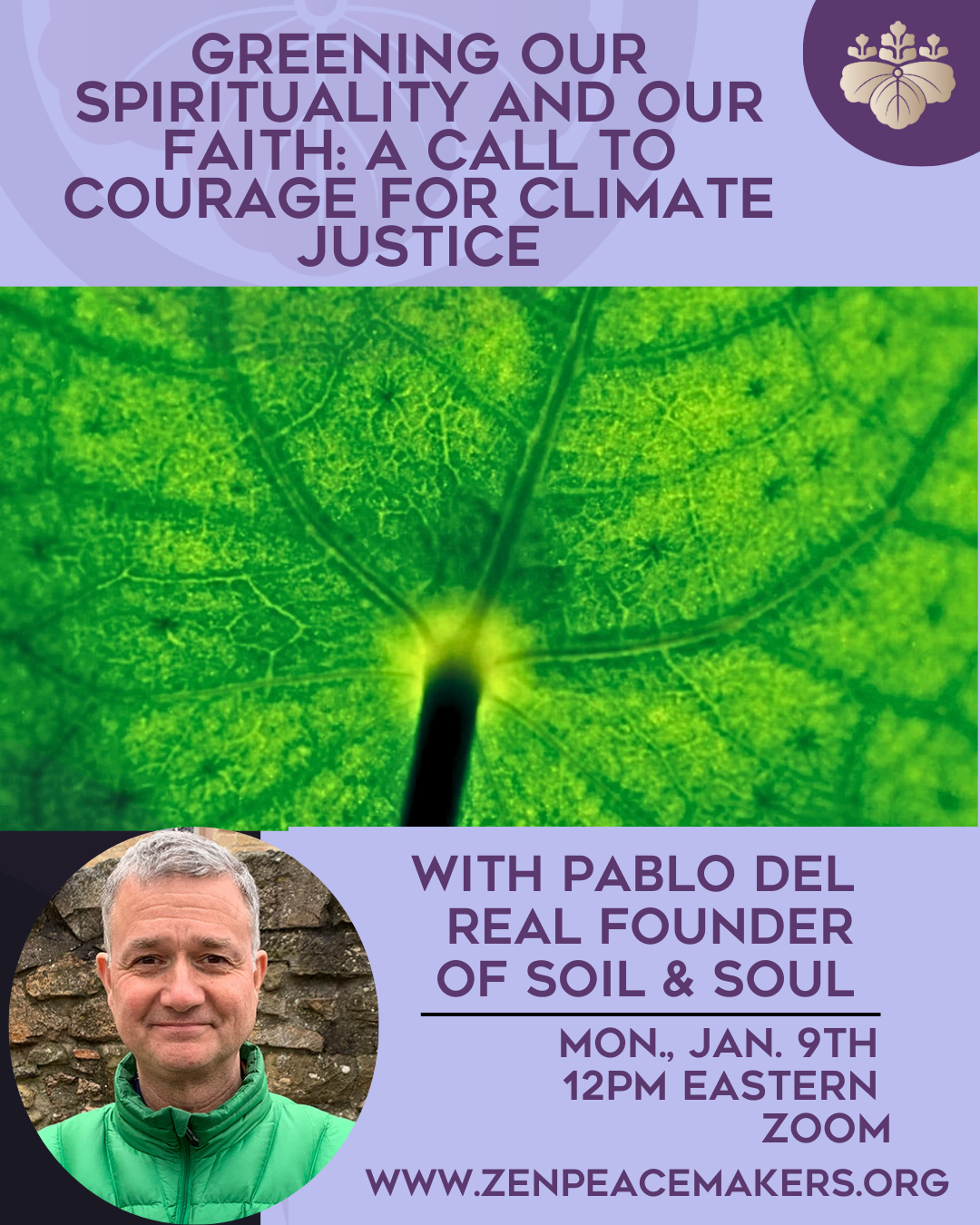
2 Antworten
It saddens me, yet again, that Zen Peacemakers takes a consistently anti-Israel perspective.
Being a Spiritholder fort he Bearing Witness Retreat in Auschwitz
for many years, I had also the chance to visit and join workshops in the west bank. I have close Israeli friends as well as friends in Palestine and palestinian and Israeli friends in Switzerland. I care for all the peoples on both sides oft the wall. Hoping that one day they can all live in peace together.
Please find here links of documentary films, bearing witness .
https://www.youtube.com/watch?v=jyHfBL5DKyU&t=1296s
https://www.youtube.com/watch?v=XYdoS9j2vnA
https://www.youtube.com/watch?v=X1VDv3sapY0